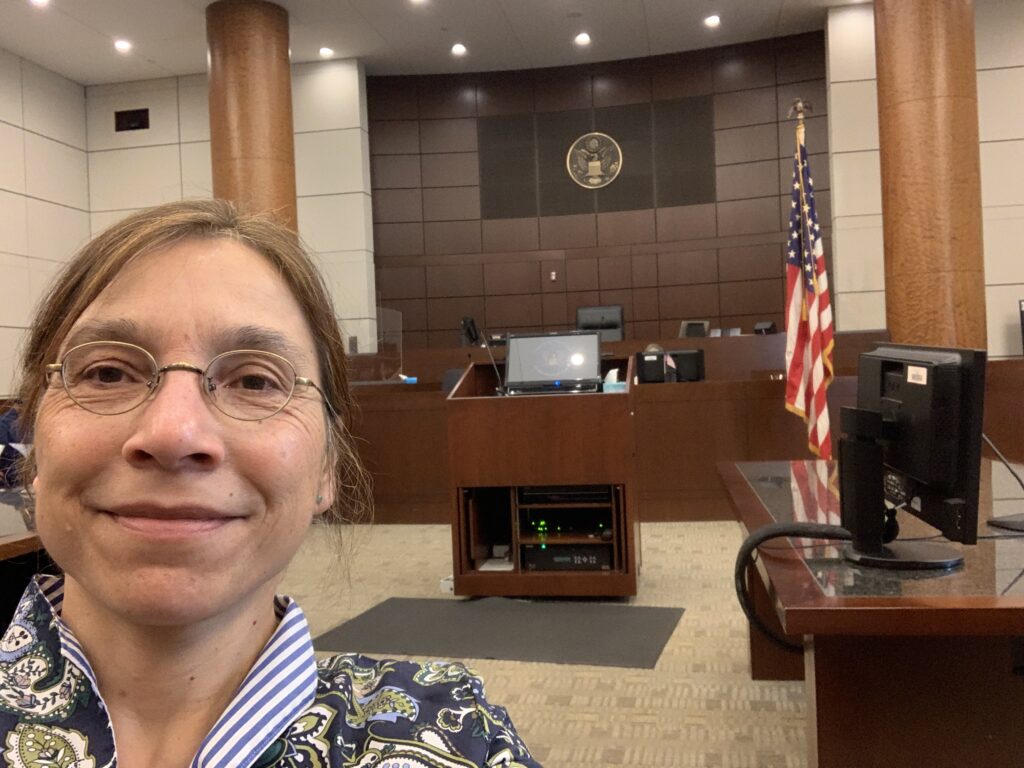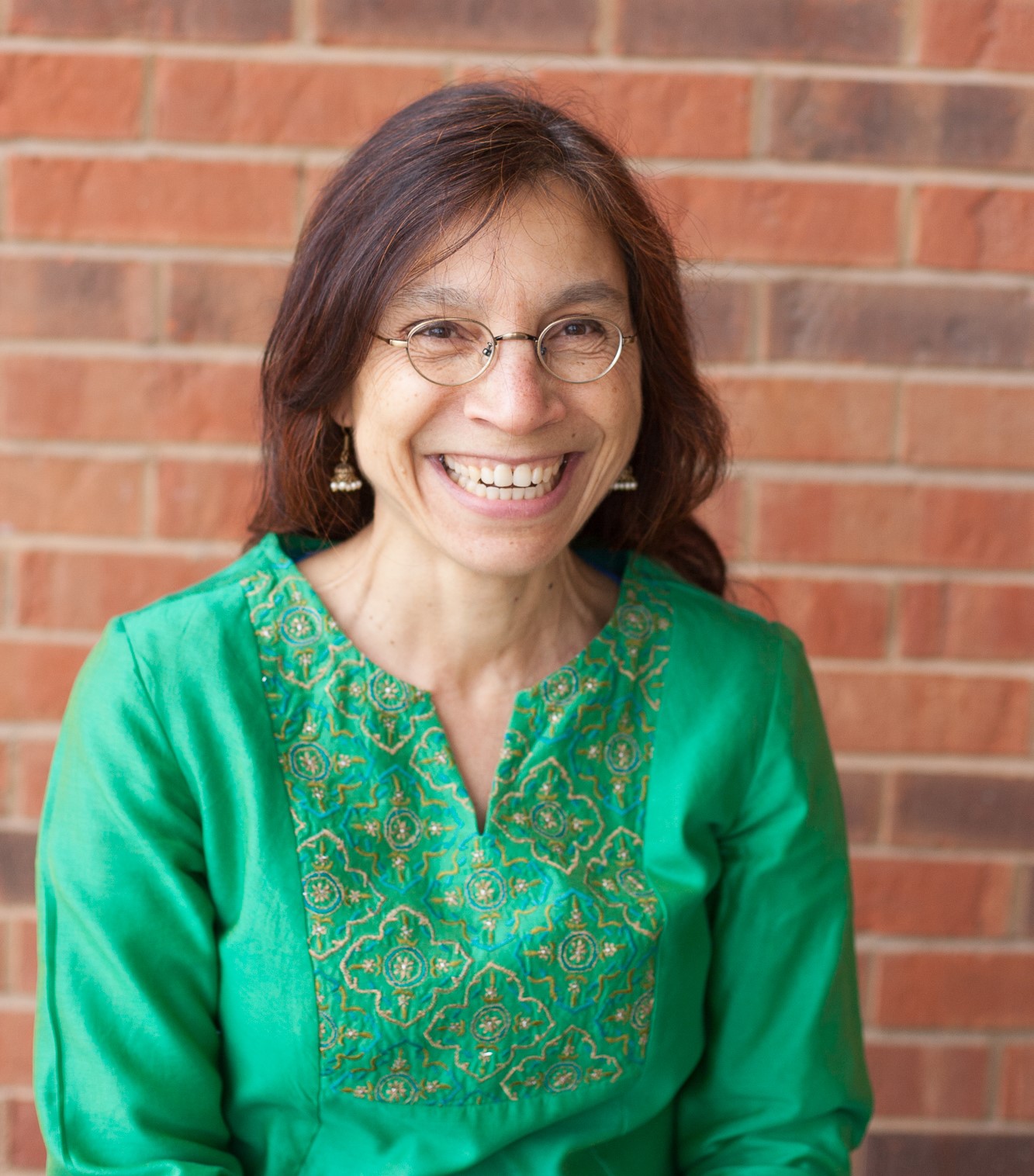The tenured Meramec English Professor talks about her history and recently becoming an American citizen
BY: JACOB POLITTE
Managing Editor
Professor Shamim Ansari has traveled a long road to get where she is today. The longtime Meramec English Professor, who began teaching at the college shortly after earning her Ph.D from the University of Denver in March 2008, has traveled across the globe to achieve career success, and recently, to achieve American citizenship.
The beginnings of a journey
She was born in India, and the cultural difference between the two countries could not be more vast.
“Growing up in India as a woman is not the best because you are always required to place yourself second to the men around you, be it father, brother, husband, or son,” Ansari said. “I was basically raised in a Muslim family since my father is Muslim by culture. I needed to follow the Muslim customs including a rather strict separation between men and women.”
Before coming to America, Ansari spent time in Germany pursuing higher education, noting that she had a personal connection with the country. She also formally immigrated to Germany, and obtained citizenship there as well; she retains that German citizenship to this day.
“My mother is German and lived in Germany for many years after she separated from my father in India,” she said. “Once I completed my high school in India, I immigrated to Germany to do my bachelor’s and master’s in English there.”
“After about ten years in Germany, I realized that I wanted to continue my Ph.D. studies in English in America because I did not feel at ease speaking and writing in German. Having grown up in India, where English is the main language in the best schools and colleges, I was used to thinking and writing in English rather than German. I also felt drawn to America due to its upbeat, optimistic, can-do, full of opportunities culture. I did not really like the rather serious and often pessimistic culture in Germany.”
Why seek American citizenship now?
Ansari says that her decision to seek citizenship was motivated, in part, by a few different factors.
“I got my green card, my permanent resident card in 2001,” she said. “And every 10 years, you have to renew it. So for 20 years, there was a screen on the green card and I didn’t want to go for an American citizenship because I didn’t feel ready. I didn’t feel as if I belonged here. I didn’t feel ready. And somehow, I just never got around to doing it. But two things happened. First of all, in 2016, Trump was president and Trump didn’t like Muslims and still doesn’t like Muslims. And that got me scared for the first time in my life, if I might not get my green card renewed, because my name, I’m sorry, is a clearly Muslim name, even though I don’t believe in Muslim religion, I’m an atheist.”
“And then I also realized that my son, who is now in college, wants to build a life in America,” she said. “And I need the guarantee that I will always be able to access my son, and whenever he builds a family, I will never have the problem of coming to America, [even] if I’m ever not allowed to continue my green card status. So that was that.”
“And the third reason is that, after 20 years, I have realized that everything that I have today, all [of] my success, my marriage to Andrew, my British-German husband who are found here [in America], my child, my one and only son, who was born here, my career at STLCC, my house and my friends, everything that I have achieved in the last 20 years has made me very happy in America. So now I’m ready to become an American.”
Ansari also mentioned that before and after the citizenship process, she had the opportunity to visit the cities of Washington D.C. and Philadelphia, both of which are rich with American history. While she traveled to Philadelphia in January of this year for a MLA Conference, she had previously traveled to Washington D.C. in August. She said that it helped to further solidify her decision to pursue her citizenship.
“I went to all the monuments and looked at everything,” she said, “and realized that I am about to apply for citizenship as soon as I get back to St. Louis.”
On visiting both cities, she reflected on the way these travels put things in perspective for her.
“I experienced them for the first time during the process of applying and getting our citizenship, which was very interesting. But I really got a very physical, tangible sense of what it means to be an American.”
Ansari speaks on “unusually” fast citizenship process
Professor Ansari says that the process of formally applying and obtaining American citizenship occurred in a relatively short period of time, roughly four months. She began applying in the last week of August 2023, and within a month, got an invitation to be interviewed and take a citizenship test. After passing both, and submitting all applicable documents including copies of her green card, marriage certificate and proof of paying taxes, she officially took an oath of citizenship on December 12, 2023.

Ansari believes the expedited nature of her citizenship process had to do with a variety of factors.
“I believe it had to do with multiple factors,” she said. “Such as me having a green card for over 20 years and also my working at St. Louis Community College as a kind of ‘public’ school service employee. Being a German citizen rather than Indian also helped.”
Speaking on why the process may take longer for some others, she said “In some cases the process takes longer because the person does not originate in a Western but perhaps Asian or African country. Immigrants from these countries generally have a much harder time.”
Ansari says that the hardest part of the process for her was preparing for the exam itself.
“My only challenge,” she said, “was to memorize all the 100 required interview questions on American history, politics, and culture since I had very little knowledge of basic documents such as the Constitution, the American Declaration of Independence and the whole system of checks and balances in the government system. I spent many hours studying American politics in order to feel at ease with answering the interview questions.”
She said a helpful individual was Meramec History Professor Dirk Voss, who obtained American citizenship early last year and is currently on an academic sabbatical this year. Voss, a German citizen, gave Ansari advice on how to retain her German citizenship; both are now dual citizens of Germany and the United States.
“In fact, I took his advice on how to convince the German government that I want to continue being a German even after applying for an American citizenship.”
As for the advice she’d like to give, Ansari said to follow the process and make sure they have everything ready.
“My advice to anyone going through the citizenship process is that they do not really need a lawyer if their case is simple and uncomplicated,” she said. “All they need is lots of time and patience with filling out the application in small steps, gathering all the documents, and waiting for the Immigration and Naturalization Service to respond. I would also advise them to watch all the videos on the INS website and read all the documents they provide with respect to the process of applying for citizenship.”











